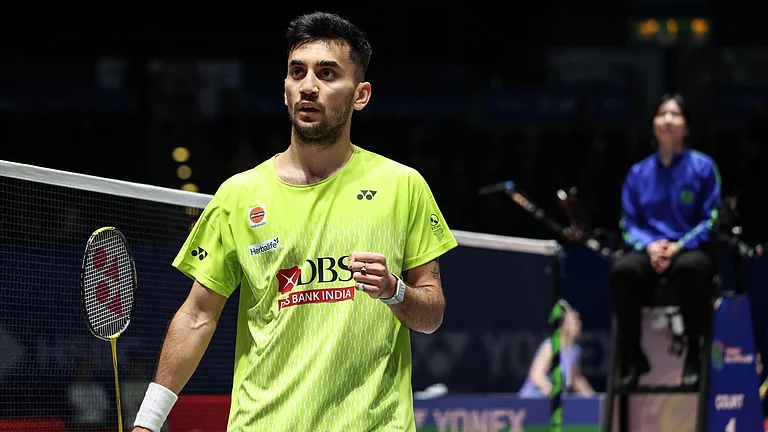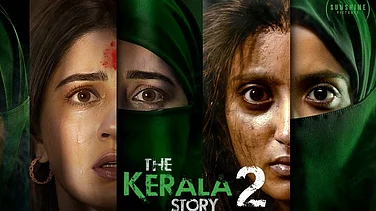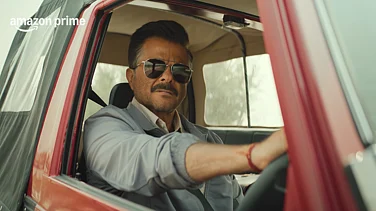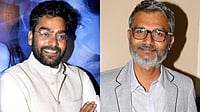From 'Miss Lovely' (2012) which centered around Mumbai's C-grade porn and horror industry to ‘Daddy’ (2017) revolving around the gangsters in Mumbai, filmmaker Ashim Ahluwalia has always played several narratives simultaneously. Cut to 2023, with his Netflix series ‘Class’, an official adaptation of Spanish series ‘Elite’, he certainly has managed to arrive on the forefront of commercial storytelling.
In an interview with Outlook, the filmmaker talks about how he came up with dealing with several taboo topics in ‘Class’ and how the audience is opening up in terms of content on OTT. Excerpts from the interview:
Be it 'Miss Lovely' and ‘Daddy’ to now ‘Class’, you tend to bring in different styles and play on several narratives simultaneously. How did you get about it with ‘Class’ since it deals with teenagers?
I’ve been keen to make something about teenagers for a long time, the deep, conflicted emotions you feel when you’re young. Just the whole struggle with defining yourself at that time of your life interests me. The class conflict between the rich and poorer kids, and the way that the school plays out like a mini version of the world outside was something I could get into. I’ve always been interested in the way society pushes people over the edge – whether it was sleaze filmmakers in ‘Miss Lovely’ or gangsters in ‘Daddy’. I like stories that show us the push and pull of individuals against the society they occupy.
People have pointed out the exact similarity between the Spanish series ‘Elite’ and ‘Class’. What do you have to say about the mixed reviews of the show?
Yeah, but I don’t see this as a criticism at all. I’ve used the original show, of which this is an official adaptation, like one would when you adapt a source novel. The way one might adapt the plot of ‘Othello’ or ‘Pride and Prejudice’, or the way we re-tell mythological stories we already know the outcome of. This was intentional. The story might be the same but the difference, and that is a very big one, is in the telling of the tale, the psychologies of the characters, the social and cultural setting. That’s night and day apart from the original show.
Here other than class there is also caste – so that makes the conflicts more complicated. The way parents are, and their involvement in children’s lives is very different from Europe so the parents here are a much larger part of this show than the original. There is also corruption, in the original the investigation remains in flashback, but here the cops are actually part of the crime story, in the sense that they are on the payroll of one of the wealthy parents. There are a lot of social and cultural differences, and ironically - the fandom of ‘Elite’, you can see these conversations on their subreddits, are huge fans of ‘Class’. They discuss all the changes between the shows, and it’s fascinating. Those who were comparing the first trailer to ‘Elite’, mostly no longer have that complaint as ‘Class’ has become its own thing.
The scandals of the Delhi schools have been in the news. Also, ‘Class’ talks about the issues of caste and class, and also homophobia. How did you deal with these sensitive topics all together at once since filmmakers often refrain from doing so?
I try to stay honest to whatever I am making. There are no good and bad people, everyone is imperfect and human, like in real life, a product of their upbringing and the society around them. All my work is about this. Of course, anything you make is always open to interpretation. It can be a hundred different things to a hundred different people, you can’t live in fear or second-guess if someone will get offended. You just have to be respectful and authentic to your characters. And understand everyone looks at what you make from where they are standing, from their own position, it tells you more about them than about the show. And no two people are the same. Even if ‘Class’ just opens up a conversation, that’s good for me.
Do you think more informed content is only possible on OTT platforms? Or do you think the Indian film audience is opening up to it too?
The audience is opening up faster than the creators. In my mind, we don’t even have enough new content for them. OTT is easier because it’s targeted, it’s also not dependent on a week-long run in a cinema, unlike mainstream theatrical releases that just have to open on a thousand screens every Friday and then “prove” themselves within a week. That tent-pole style of film release will only allow for a certain type of film to get made. If we see more niche distribution, like you have in other countries, that will evolve our feature films as well, we will have more nuanced stuff, but until then theatrical films will always be basic crowd-pleasing films compared to what’s on streaming platforms.
How did you get the entire cast on board? Were there any apprehensions in terms of all of them being newbies?
Not at all, in fact, just the opposite. I was clear that I didn’t want famous kids or anyone well known. Each person needed to be a total revelation. Other than Gurfateh Pirzada, everyone else is more or less a non-actor, each making their screen debut in ‘Class’. It was more about the right people who already seemed close to the screen characters themselves, who felt real and brought a lot of their own lives to the role. It’s just that, for me, there were no second options to play these characters.
Tell us more about your future projects, what should the audience look forward to now?
Right now I am committed to a few film projects, one which is an international film, it’s my first English-language film set outside India, it’s also set in the near-future so it’s different from other things I’ve done. I have a few other projects in development, but I do tend to take my time.






















